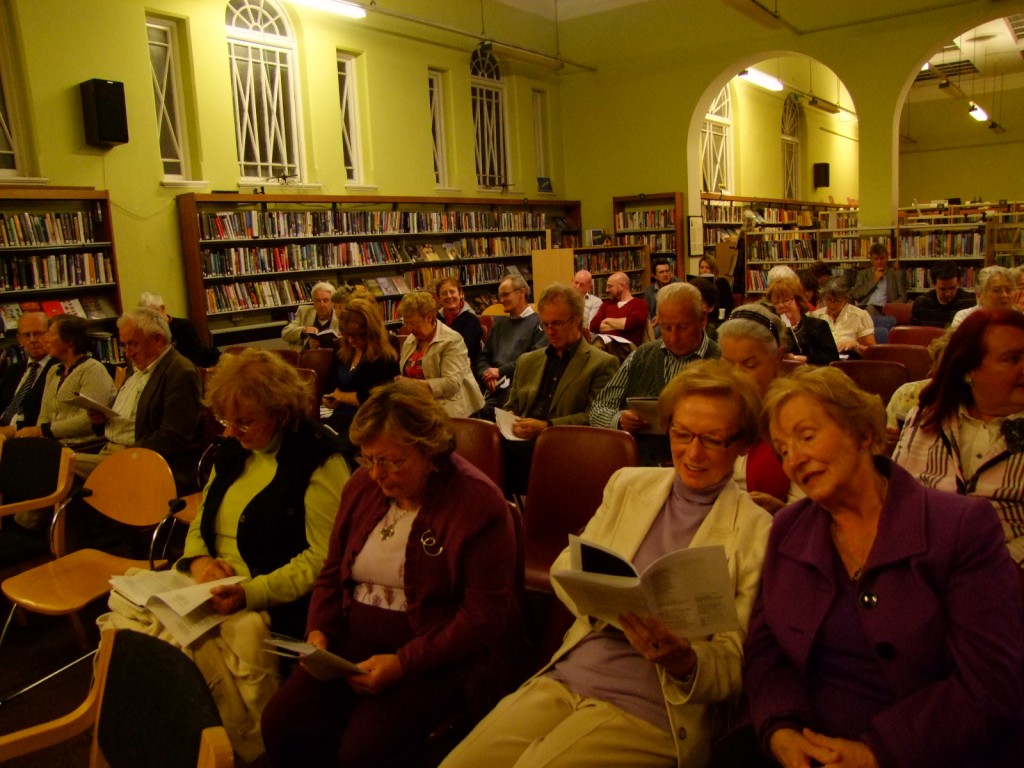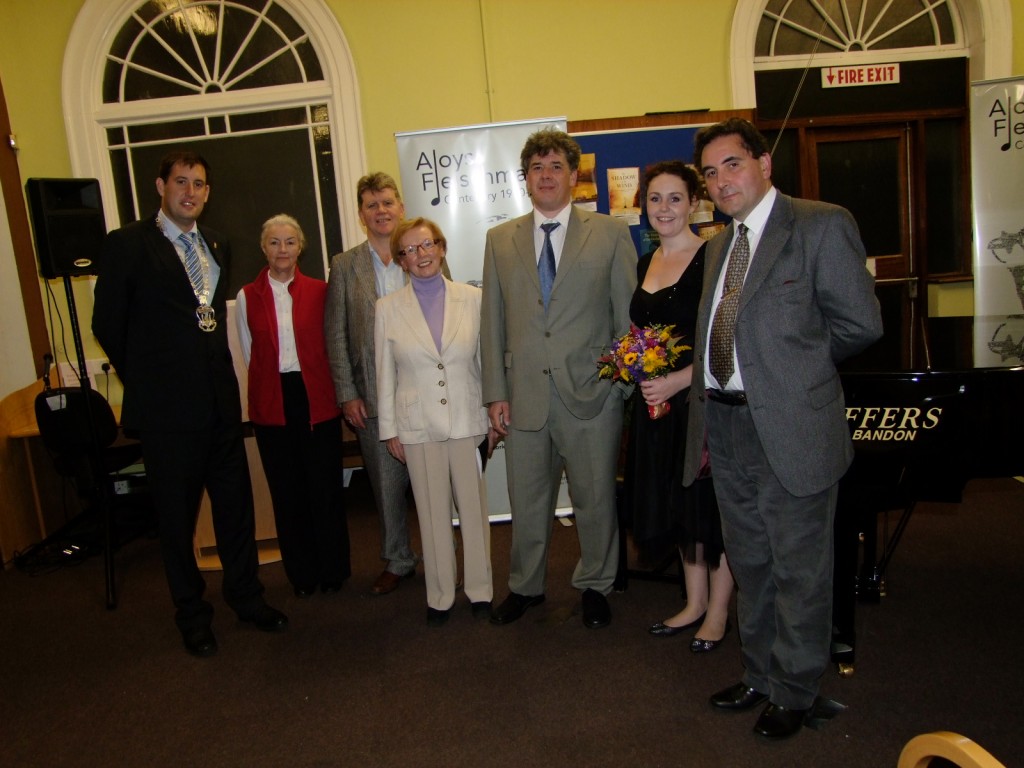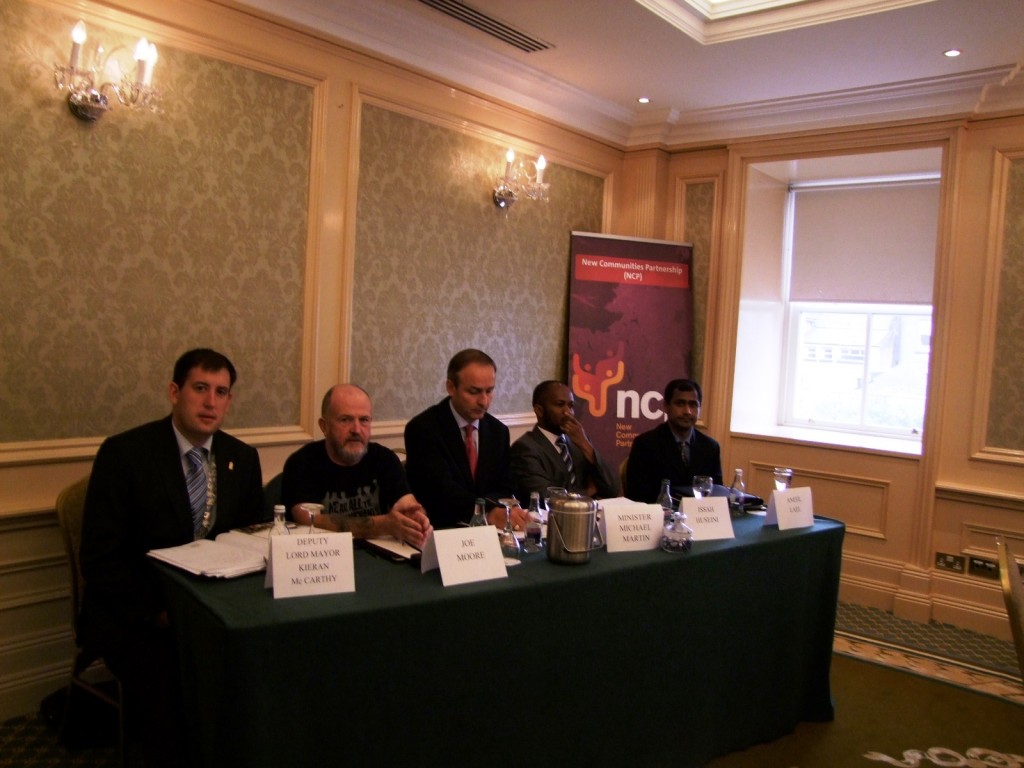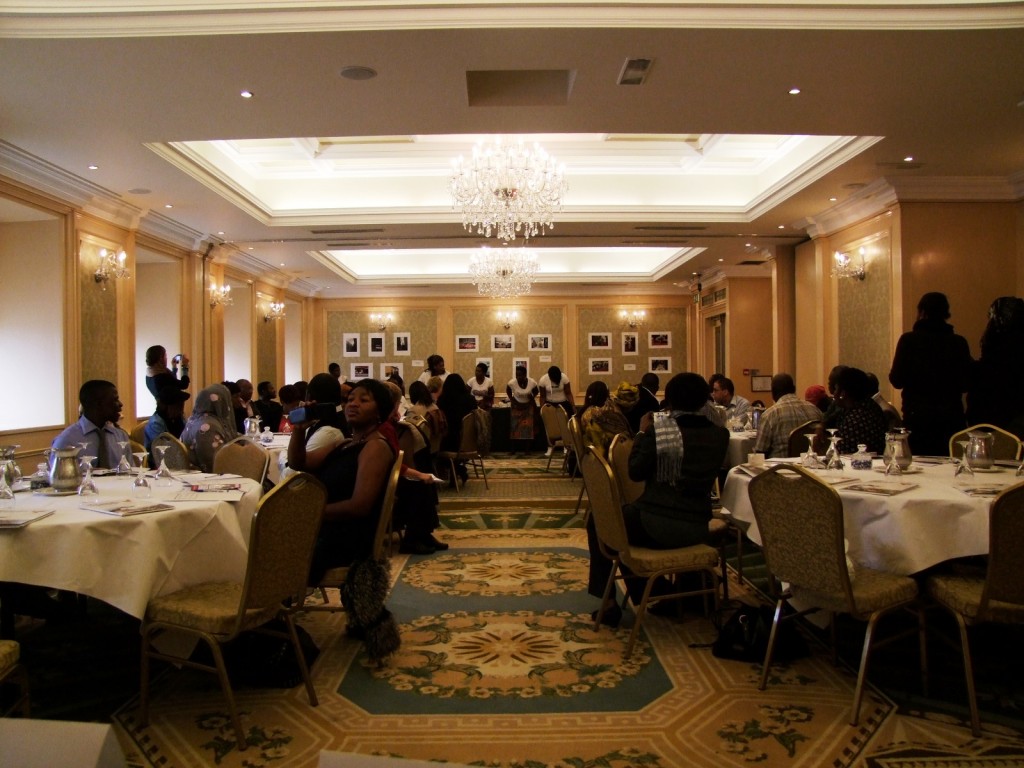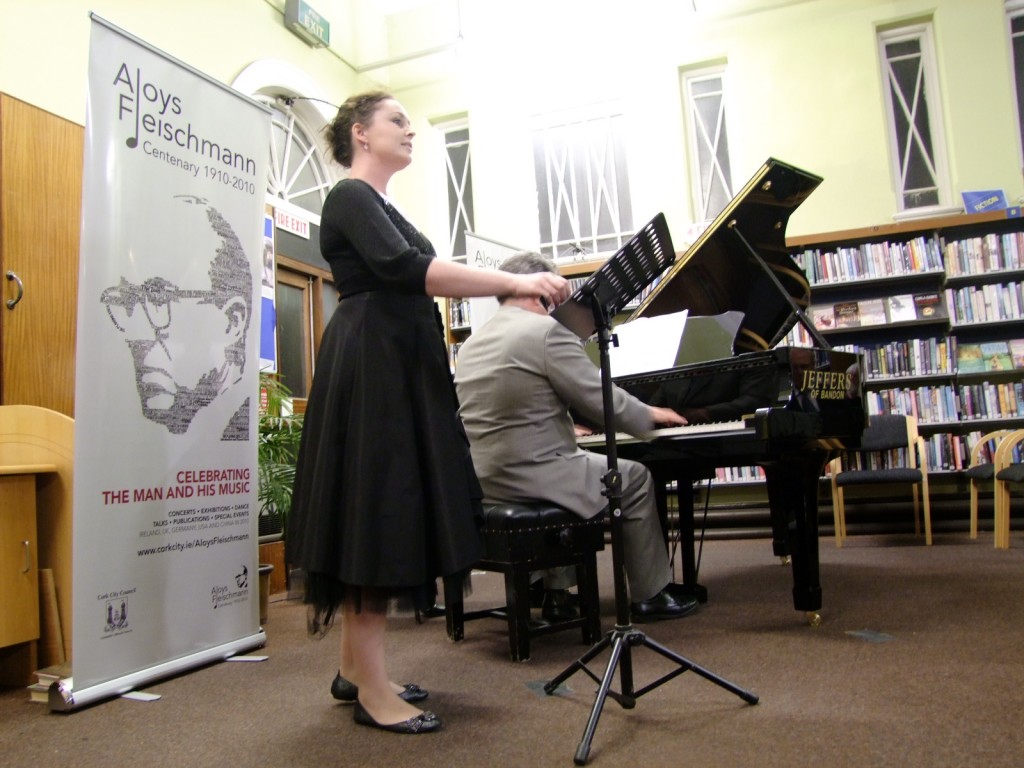
`Aloys Fleischmann and his Circle’
As part of Cork City Library’s programme for the Fleischmann Centenary celebrations a lecture by Séamus de Barra with a recital by Aoife O’Sullivan (soprano) and Patrick Zuk (piano) will take place at the Central Library, Grand Parade, Cork
Saturday, 18 September 2010 at 7.00 p.m.
Cllr Kieran McCarthy
On behalf of the Lord Mayor, many thanks for the invitation here this evening,
Tonight we continue our celebrations of the life of Aloys Fleischman, a name that has weaved its way through many decades into the consciousness of Cork cultural history. His name is up there amongst the great citizens that emerged from our beautiful city to make a difference.
It seems an all too easy to sum up his career – it seems to be an easy option to say he was an Irish composer and musicologist. That he wrote several books and articles on Irish music. It is also seems too easy to highlight that he was a one time Professor of Music in Cork.
He composed in many formats, and his work includes pieces written for chamber, solo instrumental, ballet, chorus and full orchestra. He founded the Cork Symphony Orchestra in 1934 and was involved in the establishment of the Cork International Choral and Folk Dance Festival (now called Cork International Choral Festival) in 1954. He worked alongside Joan Denise Moriarty in setting up the Cork Ballet Company in 1947. She being a name like Aloys has also etched its way into the cultural life of this city.
It may also be too easy not to try to grasp the cultural undercurrent that Professor created, the spotlight he shone on types of music perhaps on the verge of disappearing or the influence of his carefully crafted speech notes on those who listened, inspired and debated what they heard in their lives. We perhaps will never know how many souls he did inspire or perhaps saved.
I’m a firm believer that the subject of history should be about learning from the past. Otherwise I think the relevance of history is very limited. There is so much to learn from Aloys Fleischmann. So what are some of the lessons?
Firstly, our celebration this year is about legacy. It is about what we have inherited from Professor Fleiscmann whose contribution to his world inspired, has now evolved and now contributes to our modern society. We’ll hear the legacy through Séamus de Barra, Aoife O’Sullivan (soprano) and Patrick Zuk’s work this evening. (piano). Professor Fleischman’s life story in particular in the 1930s touch upon ideas such as ambition, how he moved forward intellectual engagement, politics, community development, art and education. Concepts of history, culture, globalisation, memory, enterprise and identity are all seem to be represented in his life story.
What is very important to note is that the life of Aloys Fleischmann is about a real person and real events. It is very easy to romanticise about the lives of people in the past. Yet when you explore through his achievements, there is so much there and yes there is so much to learn from them. But he like most people also struggled. He like all of us had a journey through life, a journey through decades so different to our own. We live in the post celtic tiger economy where there are new economic empires being forged. We live in an advanced technology age. So perhaps the first lesson I wish to share with you this evening is about life and the journey we all go through.
Secondly, underlining Professor Fleischman’s work are questions about the power of creativity, colour and imagination.
It is about taking risks and pushing out the comfortable boundaries of life.
There is such a broad spectrum of people represented here but we are all part of his story this evening because the legacy represented here tonight is very much alive. His life still influences the essence of Cork today. And Cork is very much alive.
So let me ask the question to you?
What can you do that will bring his legacy forward? What can you do to continue the enormous contribution of Professor Fleischmann?
Have you got some of Prof. Fleischmann’s talents? Do you know someone?
Are you a composer, a musicologist? are you a writer? an artist ?, a creator, an educator ?
Now is our time… What can you do to move Cork forward or indeed yourself forward ? Every person deserves a challenge. And every person can make a difference. And perhaps that is the second lesson. every person can make a difference If you still don’t believe me, listen carefully to Seamus’s talk
The lessons on life and pushing oneself forward are but two lessons to be learned from Professor Fleischmann whether you are a business guru in Cork, a social scientist or a mild mannered Corkonian. And yes those lessons are not easy to learn…it takes time…and many of us don’t realise them until late in life.
The educational value of exploring Professor Fleischmann’s work is vast. Professor Fleischmann’s work encourages us all to ponder on the power of the individual and their contribution to society, whether at a local or international level. For the social scientist, Fleischmann poses questions for further study and debate, framing, enhancing and evolving old and new historical narratives. For the visitor, like me new to the work of Aloys Fleishmann, perhaps his work is another key part of the jigsaw puzzle of the history of a lonely planet listed city, a City and region of continuous making and inspiration. And maybe for Cork people, Professor Fleischmann is about us, the power of an individual and our place in the modern world.
